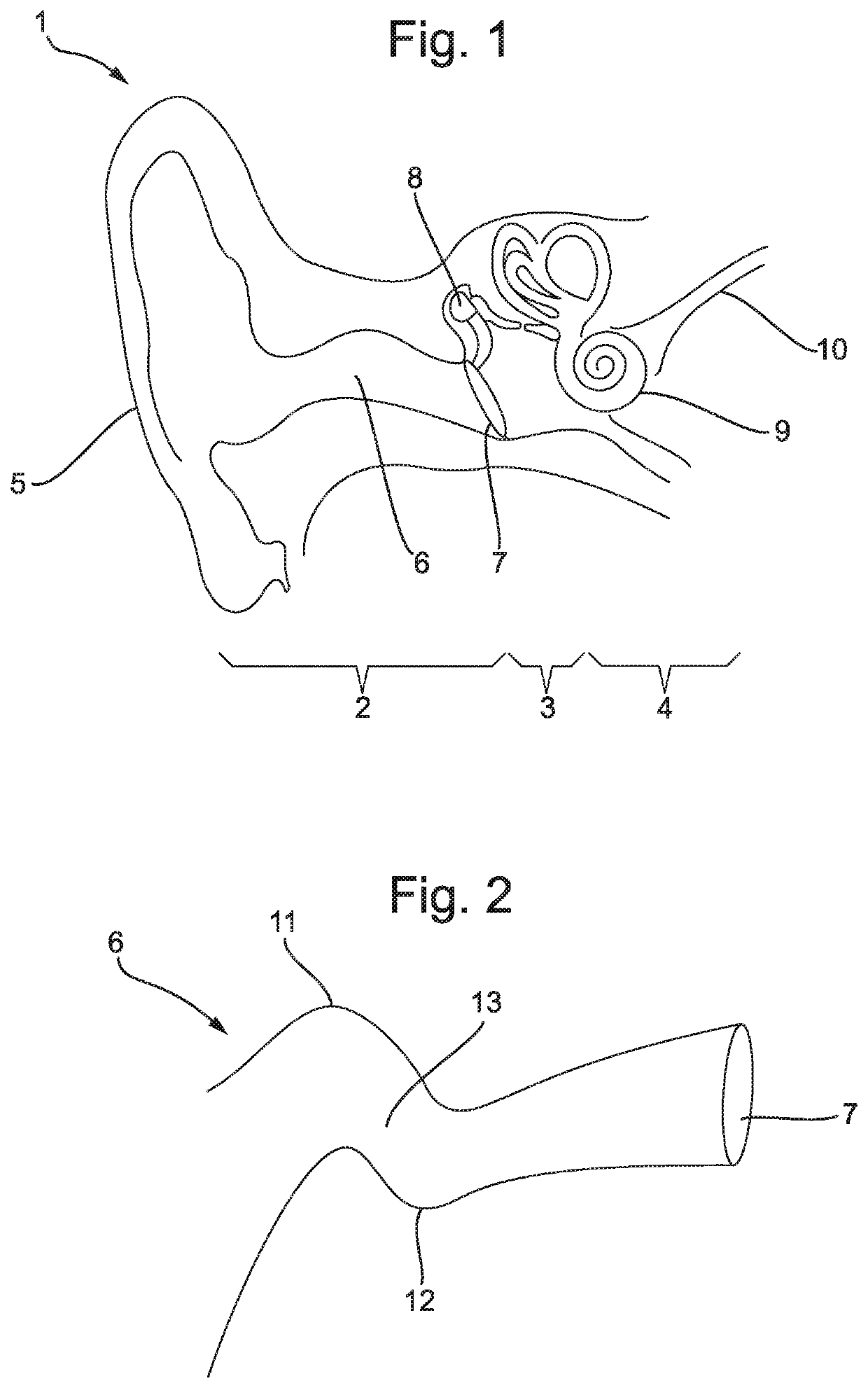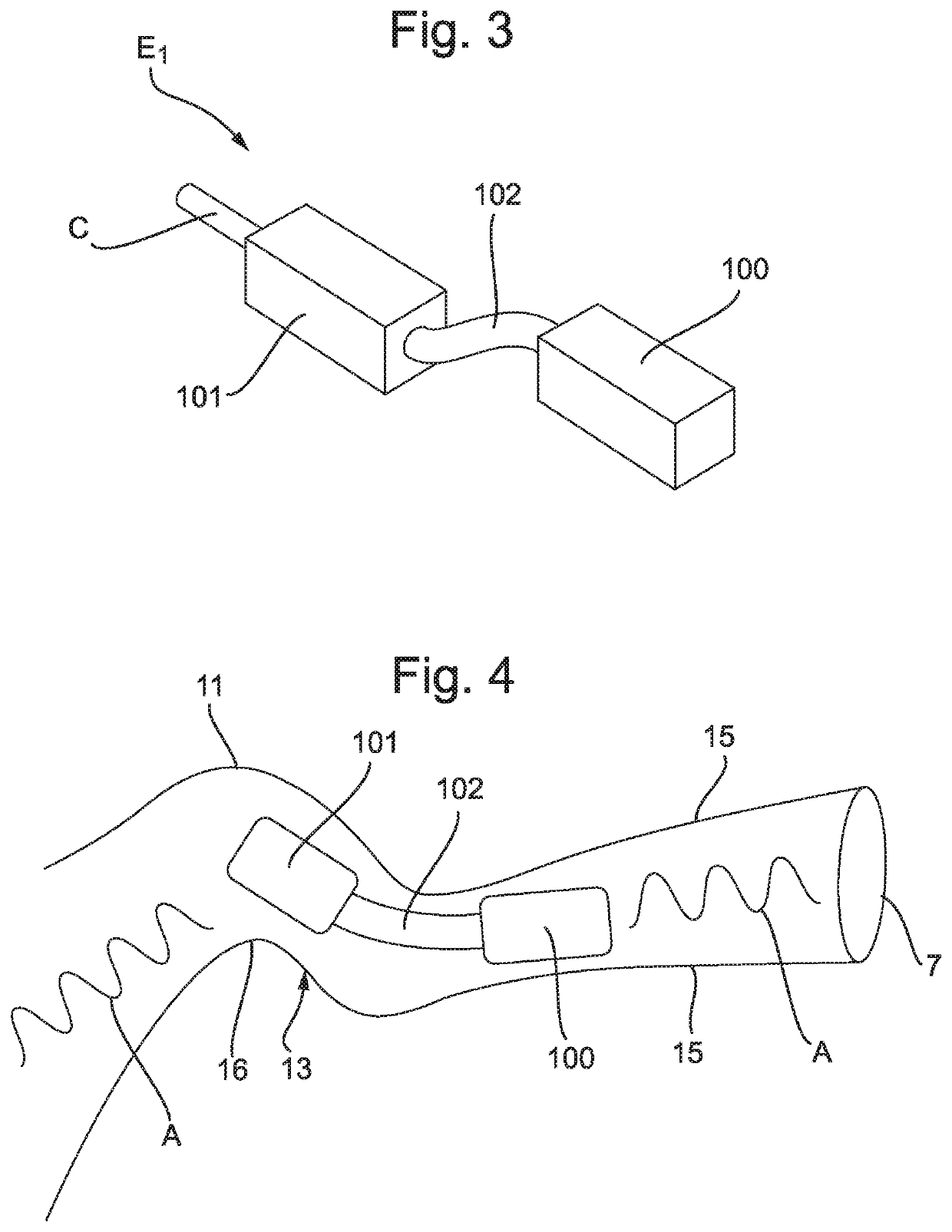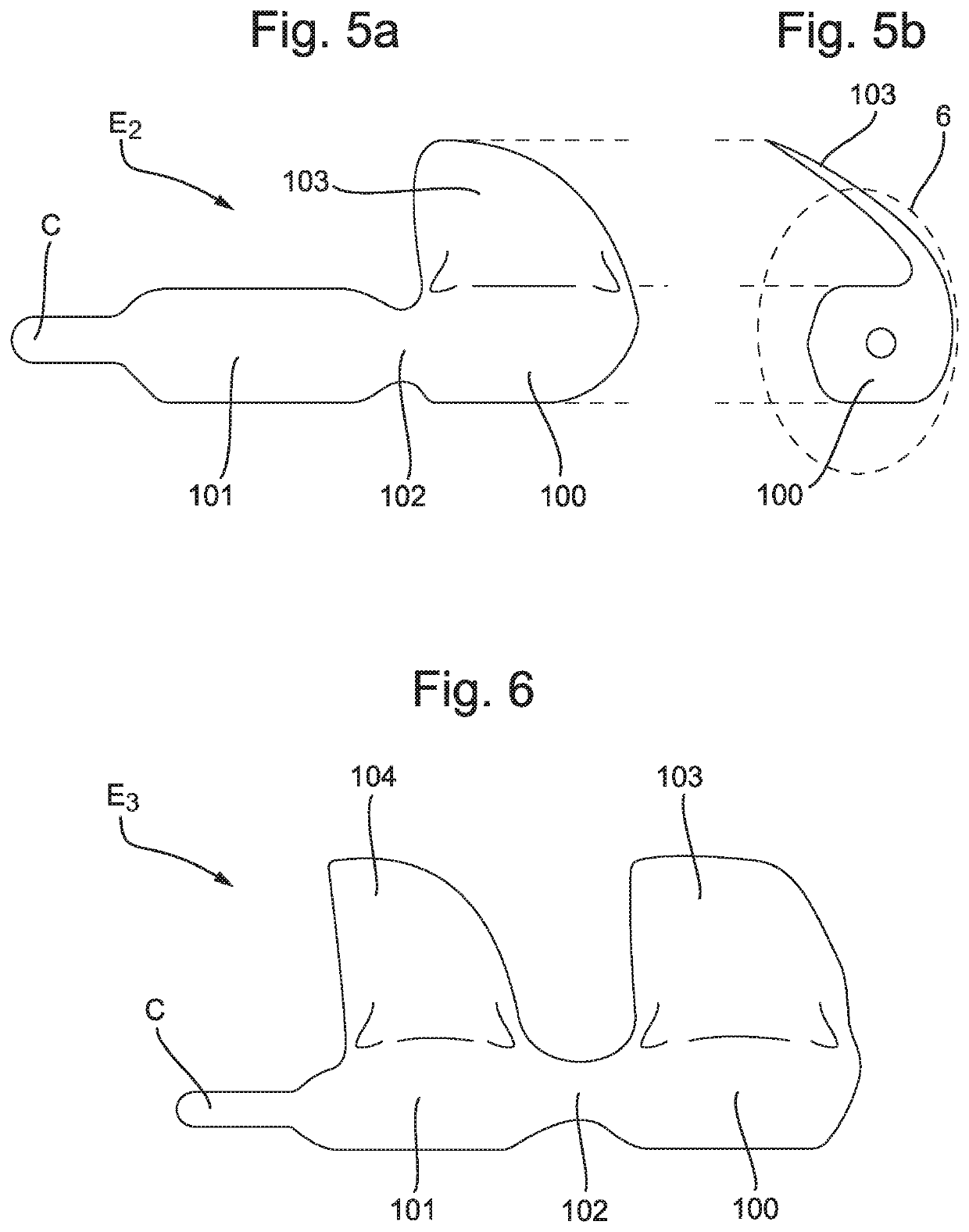Earpiece
a technology for earpieces and earphones, applied in the field of earpieces, can solve the problems of consuming more power, affecting the effect of earpieces, so as to minimise the loss of any sound and optimise the biasing effect of the skirt
- Summary
- Abstract
- Description
- Claims
- Application Information
AI Technical Summary
Benefits of technology
Problems solved by technology
Method used
Image
Examples
first embodiment
[0064]FIG. 3 depicts an earpiece in its most simple form. The earpiece E1 has an elongate body. The elongate body comprises a leading portion 100 and a trailing portion 101 interconnected by a resilient bridge 102. The leading portion 100, resilient bridge 102 and trailing portion 101 are arranged sequentially along the length of the elongate earpiece body.
[0065]In this context, “leading portion” is that part of the earpiece that fits beyond the isthmus closet to the tympanic membrane and “trailing portion” is that part of the earpiece closest to the auricle.
[0066]In FIG. 3, the earpiece body comprises a soft elastomeric material. The body is preferably encapsulated in an antimicrobial silver-ion treated silicon coating to provide waterproofing and biocompatibility.
[0067]The leading portion 100 and trailing portion 101 have a generally cuboid or ellipsoid shape. The leading portion 100 and trailing portion 101 are configured to house operational apparatus of the earpiece in one or m...
fourth embodiment
[0091]As shown in FIGS. 8a to 8c, the earpiece E4 comprises a speaker 111 (e.g. a balanced armature driver) and associated outlet port 111a to project sound towards the tympanic membrane, a thermometer 112 to detect user temperature from the tympanic membrane or ear canal wall, a MEMS microphone 113 and associated inlet port 113a to detect ambient noise as part of a noise cancelling solution and a photoplethysmograph (PPG) heart rate monitor 114 and associated sensing ports 114a to detect a user heart rate. Power and electronic signals are transmitted to the operational apparatus of the earpiece via cables 115. The cables extend to the earpiece via connector C.
[0092]To provide sound enhancement and / or counter the leakage of low frequency sound in the ear canal (frequencies approximately 4 may comprise a piezoelectric actuator 116 to directly vibrate the middle ear so as to provide low frequency augmentation. The piezoelectric actuator may extend longitudinally in the leading portion...
fifth embodiment
[0093]FIGS. 9a and 9b depict the earpiece E5 where the leading portion 1000, and trailing portion 1001 and resilient bridge 1002 are arranged to form a generally V-shaped body with a leading end and trailing end. The earpiece is configured to conform and be fully locatable in a user's ear canal. The leading end of the V-shaped body is configured to be positioned inwardly of the ear canal isthmus adjacent the tympanic membrane. The trailing end of the V-shaped body is configured to be positioned outwardly of the isthmus within the ear canal.
[0094]The V-shaped body comprises a soft elastomeric material. The body is preferably encapsulated in an antimicrobial silver-ion treated coating to provide waterproofing and biocompatibility.
[0095]As can be seen in FIGS. 9a and 9b, the resilient bridge 1002 forms the vertex at the leading end of the body, interconnecting the leading portion and trailing portion. The leading portion and trailing portion extend in a trailing direction from opposing...
PUM
 Login to View More
Login to View More Abstract
Description
Claims
Application Information
 Login to View More
Login to View More - R&D
- Intellectual Property
- Life Sciences
- Materials
- Tech Scout
- Unparalleled Data Quality
- Higher Quality Content
- 60% Fewer Hallucinations
Browse by: Latest US Patents, China's latest patents, Technical Efficacy Thesaurus, Application Domain, Technology Topic, Popular Technical Reports.
© 2025 PatSnap. All rights reserved.Legal|Privacy policy|Modern Slavery Act Transparency Statement|Sitemap|About US| Contact US: help@patsnap.com



